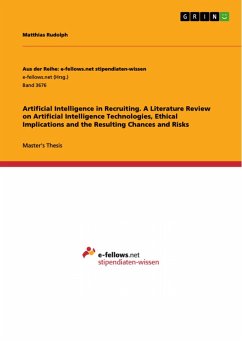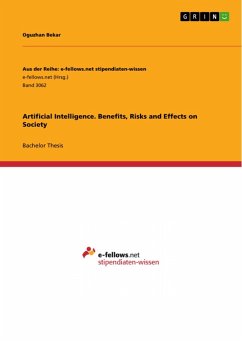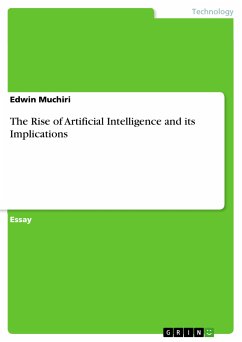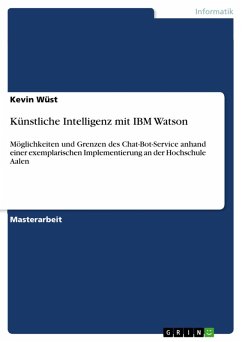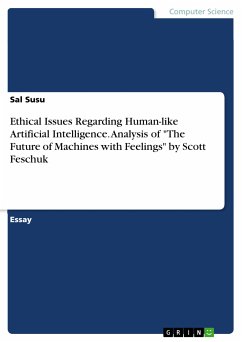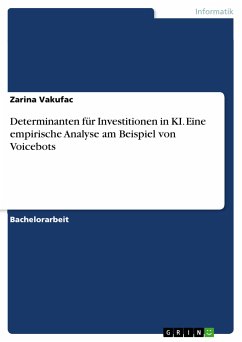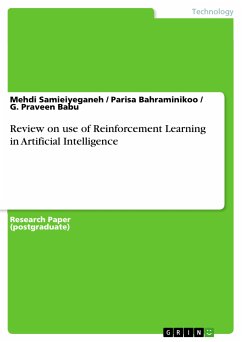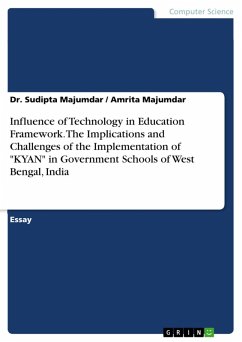Master's Thesis from the year 2020 in the subject Computer Sciences - Artificial Intelligence, grade: 1,3, Friedrich-Alexander University Erlangen-Nuremberg (Wirtschaftsinformatik), language: English, abstract: The thesis aims to analyze this field of tension between the benefits and risks caused by the introduction of AI into recruiting based on a systematic analysis of academic publications. To the knowledge of the author, neither a literature review on ethical challenges of AI-based recruiting tools nor an overview addressing application fields and the resulting ethical risks has been published so far. Consequently, this thesis aims to close this research gap by disclosing how AI technologies affect the recruiting process and how ethical challenges arising from the implementation of AI-based tools are addressed in the same publications. Consequently, research question (RQ) one (RQ1) and RQ two (RQ2) can be derived: Which AI technologies are applied in the field of recruiting, and how do they influence the recruiting process? Which major ethical challenges arise from the introduction of AI into recruiting, and how are these challenges addressed by the proposed AI-based tools? Addressing these two RQs, the remainder of this thesis is structured as follows. Chapter 2 classifies recruiting and its subprocesses as a part of Human Resources (HR), establishes a common understanding of AI and machine learning (ML) algorithms relevant in AI-based recruiting tools, and derives major ethical challenges with a focus on the ethical principles fairness and transparency. In chapter 3, the methodical approach used for identifying and selecting relevant literature is described. Chapter 4 answers both RQs, based on the AI-based recruiting tools included in the literature set. In turn, the first part of the analysis focuses on analyzing how the needs raised through traditional recruiting means are addressed by AI-based recruiting tools, also touching base on the underlying technologies. The second part addresses if and, where applicable, how these publications incorporate fairness and transparency. Subsequently, chapter 5 discusses the main findings of the analysis of the literature set and provides implications for theory and practice, followed by a brief conclusion and the outlining of limitations and future research fields in chapter 6.
Dieser Download kann aus rechtlichen Gründen nur mit Rechnungsadresse in A, B, BG, CY, CZ, D, DK, EW, E, FIN, F, GR, HR, H, IRL, I, LT, L, LR, M, NL, PL, P, R, S, SLO, SK ausgeliefert werden.

